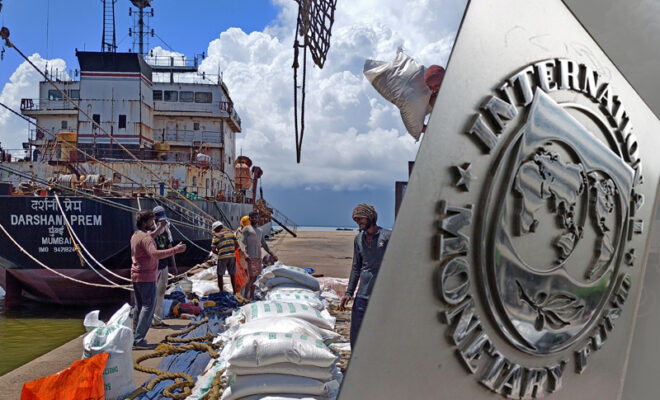IMF Requests India To Remove Rice Export Bans. What Should India Do?

The International Monetary Fund (IMF) is requesting India to lift its ban on the export of non-basmati rice because it believes that the restriction will be harmful for several other countries.
India implemented the ban on July 20, 2023, with the aim of boosting domestic supply and controlling retail prices as the festive season approached.
However, the IMF is concerned that such export restrictions on rice, especially non-basmati rice, can have significant adverse effects on the global food market.
Non-basmati rice constitutes around 25% of India’s total rice exports. By banning its export, India is cutting off a significant portion of its rice supply from reaching international markets.
This move comes at a time when the global food market is already facing challenges due to factors like adverse weather conditions across the world and the escalating conflict in Ukraine.
Russia’s withdrawal from the Black Sea Grain Deal with Ukraine has also added stress to the food market.
India’s non-basmati rice is valued in the world market, and major destinations for its export include the United States, Thailand, Italy, Spain, and Sri Lanka.
With the ban in place, there are concerns about a scarcity of Indian rice in these countries, leading to potential shortages and price hikes.
Already, the ban has led to NRIs (Non-Resident Indians) in the US hoarding packets of rice at supermarkets in response to the uncertainty surrounding the supply.
IMF’s Chief Economist, Pierre-Olivier Gourinchas, has emphasized that export restrictions like India’s rice ban can escalate food price inflation on a global scale.
In a world where food security is crucial, such restrictions hinder the smooth flow of essential commodities, putting strain on countries already grappling with food shortages and inflation.
To reduce the impact on the global food market and mitigate potential shortages and price hikes, the IMF is encouraging India to lift its export ban on non-basmati rice.
By doing so, India can help stabilize food prices, support global food security, and ensure a more equitable distribution of rice supply across countries.
India’s rice is valuable for the world market, and its export ban on non-basmati rice is seen as detrimental to global food security.
The IMF’s request to lift the ban has shown the concerns of food price inflation and shortages, especially in the context of other global stressors affecting the food market.
Removing the restriction could contribute to a more stable and accessible rice supply for countries heavily dependent on Indian rice imports.
Also Read:- Ajit Doval’s Strong Stance: Unveiling the Erosion of Trust between India and China
Like every other country, India must prioritize the needs of its own citizens. The Indian government has a responsibility to ensure a sufficient distribution of rice within the country to meet the requirements of its people before considering exports to the world.



